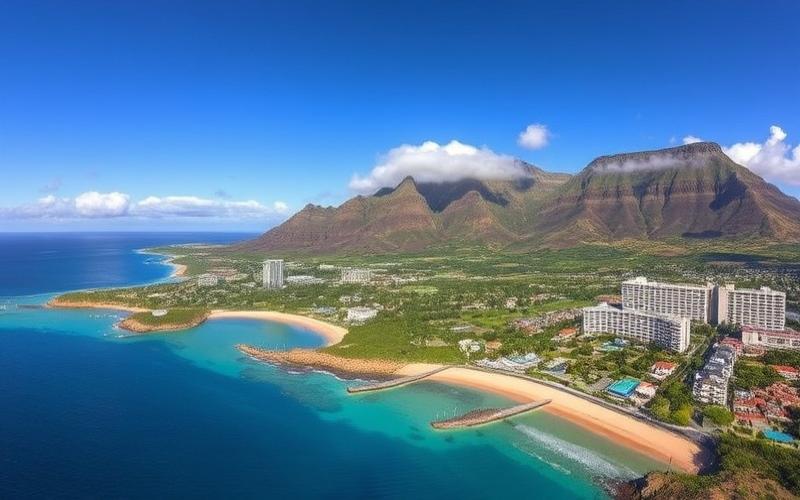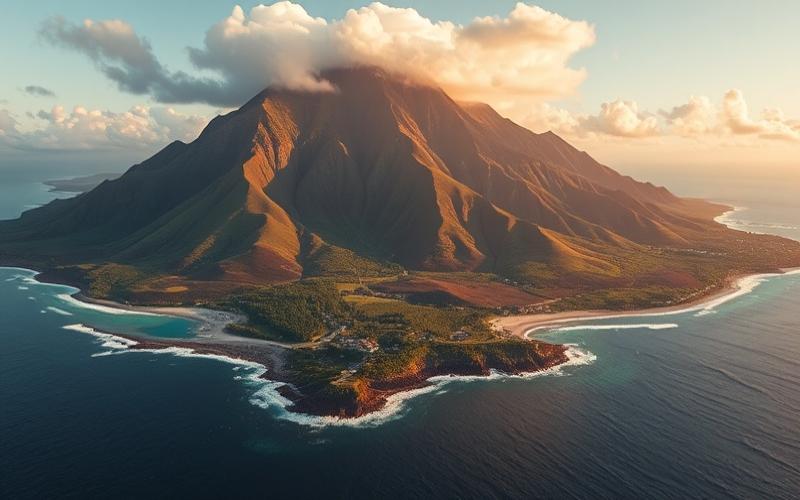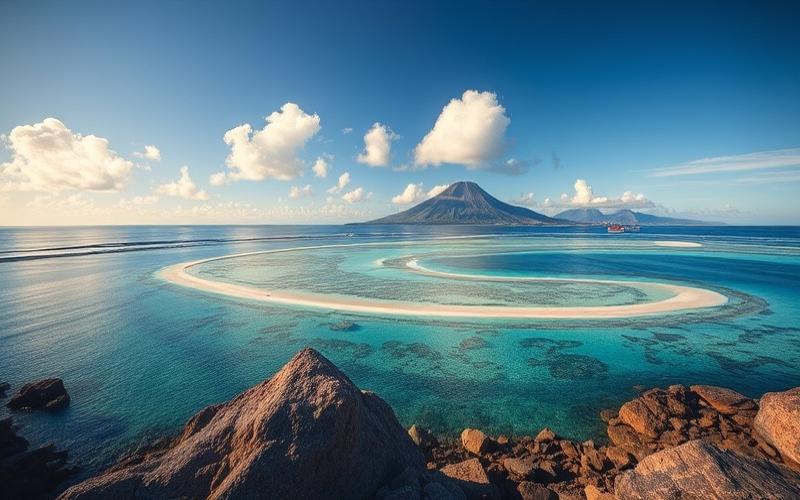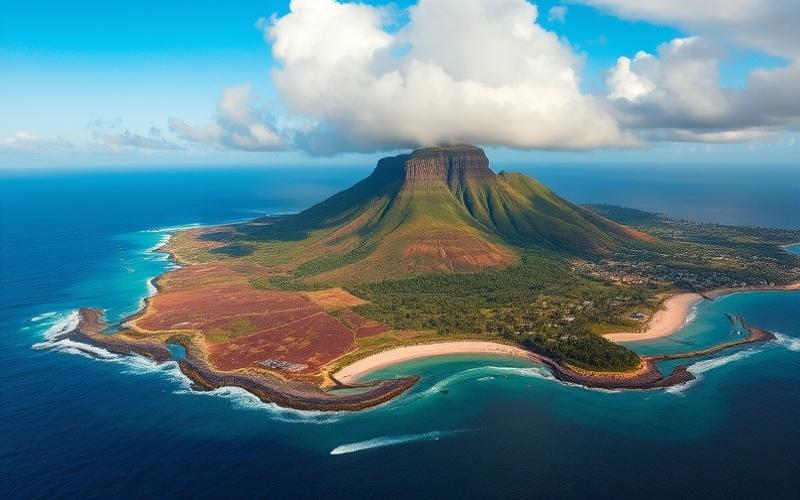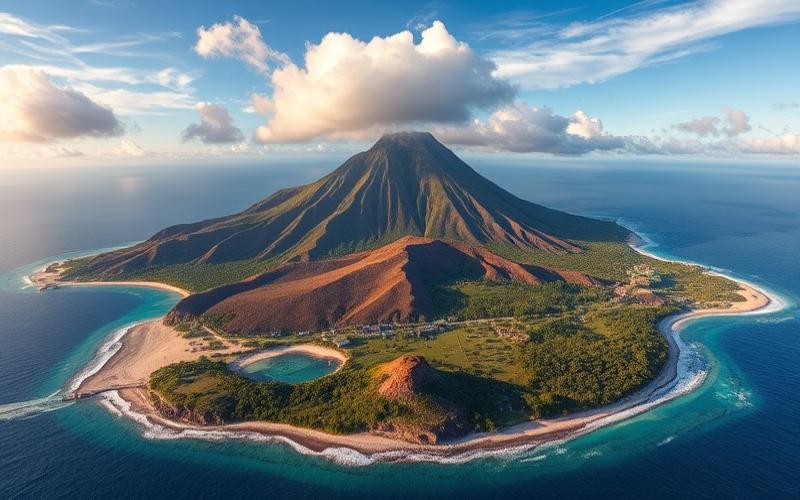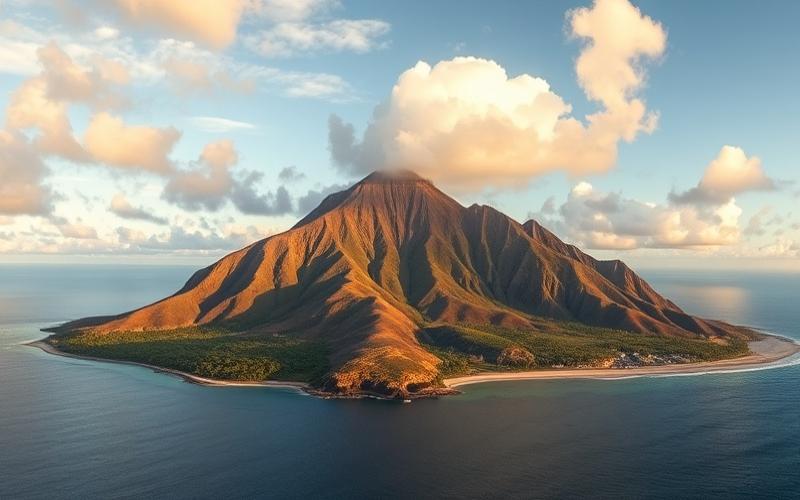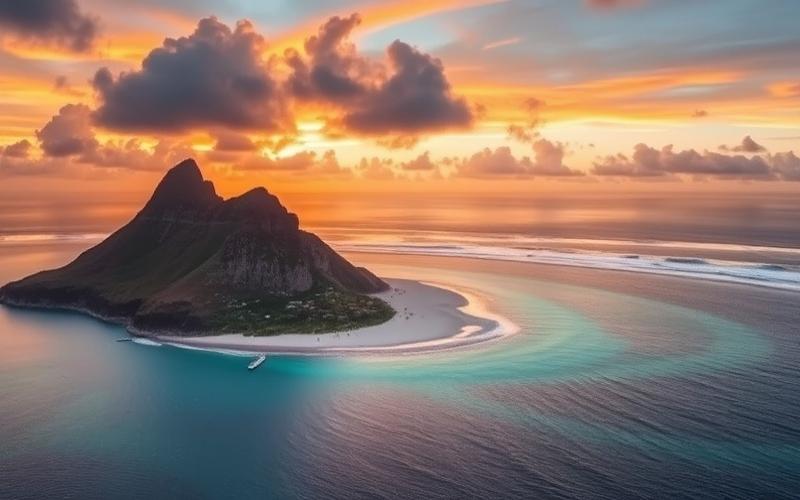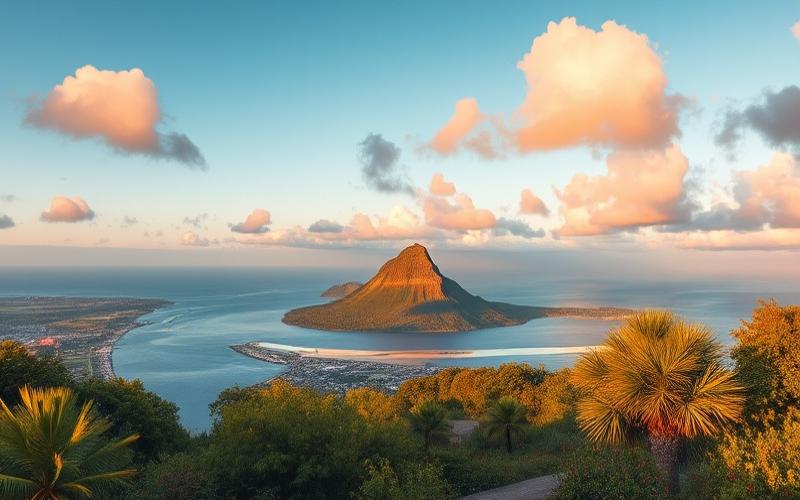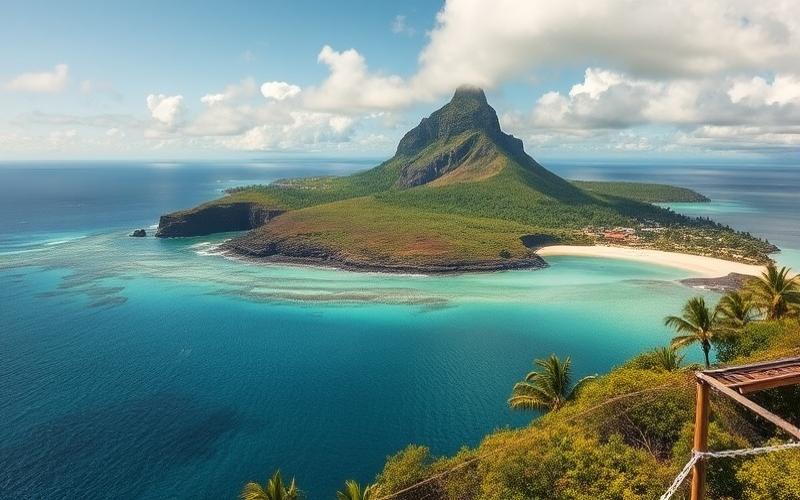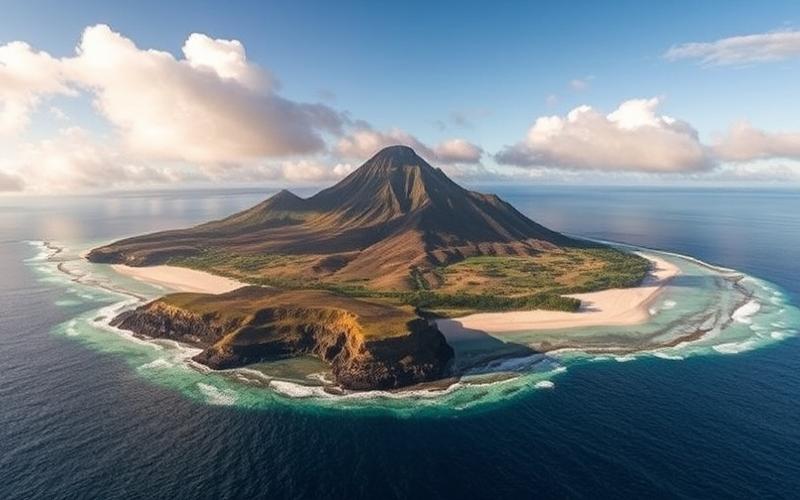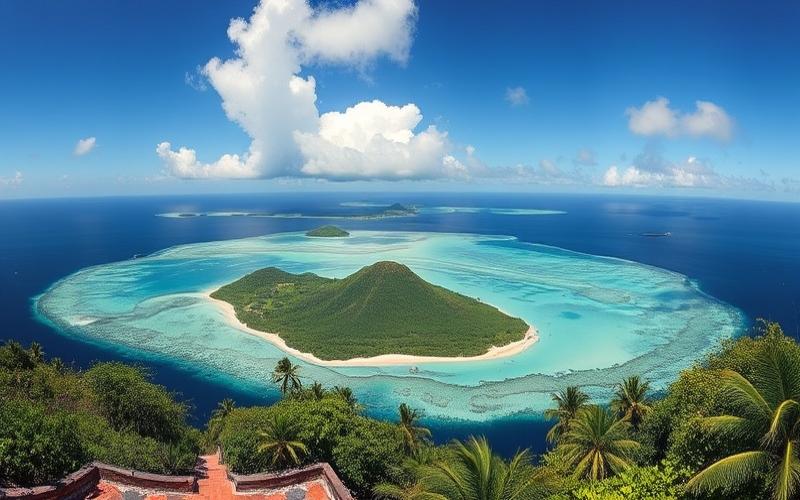
 Published on and written by Cyril Jarnias
Published on and written by Cyril Jarnias
Mauritius, a jewel of the Indian Ocean, attracts many expatriates drawn to its paradise beaches and idyllic lifestyle. However, adapting to this island’s tropical climate can pose a challenge for newcomers. In this article, we offer practical tips to help you acclimate smoothly and fully enjoy your expatriation in Mauritius.
Understanding the Mauritian Climate
Before diving into adaptation tips, it’s essential to understand the characteristics of the Mauritian climate. Mauritius enjoys a tropical climate, marked by two main seasons:
Southern Summer (November to April): This period is characterized by high temperatures, significant humidity, and cyclone risks. Temperatures typically range between 25°C and 33°C, with peaks that can reach 35°C in some regions.
Southern Winter (May to October): This season is cooler and drier, with temperatures varying between 18°C and 25°C. Rainfall is less frequent, but occasional showers may occur.
It’s important to note that the climate can vary slightly depending on the island’s regions. Coastal areas generally benefit from milder temperatures thanks to the sea breeze, while inland areas may experience more pronounced variations.
Impacts of the Climate on Health and Well-being
The tropical climate of Mauritius can have various effects on the health and well-being of expatriates, especially for those coming from temperate regions. Here are the main points to watch for:
Dehydration: High temperatures and humidity can lead to excessive sweating, increasing the risk of dehydration. It’s crucial to drink enough water throughout the day, even if you don’t feel thirsty.
Heatstroke: Prolonged exposure to the sun and high temperatures can cause heatstroke, particularly dangerous for vulnerable or unacclimated individuals. Symptoms include headaches, dizziness, nausea, and intense fatigue.
Tropical Diseases: The warm, humid climate promotes the proliferation of mosquitoes, carriers of diseases like dengue or chikungunya. It’s essential to protect yourself against bites and remain vigilant for symptoms of these illnesses.
Skin Problems: Humidity and heat can encourage the appearance of fungal infections or skin irritations. Rigorous hygiene and the use of appropriate clothing are recommended.
Fatigue and Sleep Disorders: Adapting to the heat and humidity can lead to increased fatigue and difficulty sleeping, especially during the first weeks of settling in.
Good to Know:
The acclimatization period to the Mauritian climate can last from a few weeks to several months. Be patient and listen to your body during this adaptation phase.
Strategies for Adapting to the Mauritian Climate
To facilitate your adaptation to Mauritius’ climate and preserve your health, here are some essential strategies to implement:
1. Hydration and Nutrition
Drink Regularly: Consume at least 2 to 3 liters of water per day, favoring filtered tap water or bottled water. Avoid sugary or alcoholic drinks that promote dehydration.
Adopt a Light Diet: Prioritize local fruits and vegetables, rich in water and vitamins. Limit fatty and spicy foods that can increase the sensation of heat.
Consume Electrolytes: In case of excessive sweating, remember to compensate for mineral salt loss by consuming isotonic drinks or foods rich in potassium and sodium.
2. Sun Protection and Clothing
Use Appropriate Sunscreen: Apply a high-SPF sunscreen (SPF 50+) generously every two hours, even on cloudy days. Don’t forget sensitive areas like the ears, neck, and tops of the feet.
Wear Appropriate Clothing: Opt for light, loose, and breathable fabrics like cotton or linen. Prefer light colors that reflect heat better. Remember to cover your head with a wide-brimmed hat or cap.
Protect Your Eyes: Wear quality sunglasses with adequate UV protection to prevent eye damage and expression lines.
3. Managing Physical Activity
Adjust Your Schedule: Avoid intense physical activities during the hottest hours of the day (usually between 11 AM and 3 PM). Prefer mornings or late afternoons for your sports sessions or outings.
Acclimate Gradually: If you’re a sports enthusiast, start with short, low-intensity sessions, then gradually increase the duration and intensity over the weeks.
Hydrate Before, During, and After Exercise: Drink cool (but not ice-cold) water before, during, and after your physical activity to compensate for water loss due to sweating.
4. Home Adjustments
Optimize Ventilation: Install ceiling or standing fans in main rooms. If possible, opt for air conditioning in the bedroom to ensure restful sleep.
Create Shade: Use thick curtains or blinds to block the sun’s heat during the day. Plant trees or install awnings to create shaded areas around your house.
Choose Suitable Materials: Prefer cotton or bamboo sheets, which are cooler and more absorbent than synthetic materials. Opt for furniture made from natural materials like rattan or wood, which accumulate less heat.
Good to Know:
Installing a dehumidifier can greatly improve your comfort by reducing ambient humidity, especially during the rainy season.
Preventing Climate-Related Illnesses
The tropical climate of Mauritius can encourage certain diseases. Here are some essential preventive measures:
Mosquito Protection: Use effective repellents, install mosquito nets on windows and around your bed. Eliminate stagnant water around your home to limit mosquito proliferation.
Enhanced Hygiene: Wash your hands regularly and maintain good body hygiene to prevent skin infections favored by heat and humidity.
Vaccination: Ensure your vaccinations are up to date, particularly for hepatitis A and typhoid fever. Consult your doctor before departure for a complete check-up.
Food Monitoring: Be vigilant about food freshness, especially dairy products and seafood. Heat accelerates bacterial growth.
Adapting to Seasons and Weather Phenomena
Mauritius is subject to specific weather phenomena that are important to know and anticipate:
Cyclone Season: From November to April, the island can be affected by cyclones. Familiarize yourself with the local alert system and prepare an emergency kit containing water, non-perishable food, a battery-powered radio, flashlights, and essential medications.
Heavy Rains: During the wet season, intense showers can cause localized flooding. Avoid at-risk areas and stay informed with weather bulletins.
Heatwaves: Although rare, episodes of extreme heat can occur. Be extra vigilant about hydration and limit outdoor activities during these periods.
Conclusion: Gradual Adaptation for a Successful Expatriation
Adapting to Mauritius’ climate takes time and patience. By following these tips and listening to your body, you can gradually acclimate and fully enjoy the beauties of this paradise island. Don’t hesitate to consult a local doctor if you have doubts or persistent symptoms related to climate adaptation.
Expatriation in Mauritius is an enriching adventure that will allow you to discover a fascinating culture and breathtaking landscapes. With good preparation and a positive attitude, you’ll quickly overcome the challenges related to the climate and be able to fully savor your new life under the Mauritian sun.
Good to Know:
The expatriate community in Mauritius is generally very supportive. Don’t hesitate to exchange with other expatriates to benefit from their advice and experiences adapting to the local climate.
Disclaimer: The information provided on this website is for informational purposes only and does not constitute financial, legal, or professional advice. We encourage you to consult qualified experts before making any investment, real estate, or expatriation decisions. Although we strive to maintain up-to-date and accurate information, we do not guarantee the completeness, accuracy, or timeliness of the proposed content. As investment and expatriation involve risks, we disclaim any liability for potential losses or damages arising from the use of this site. Your use of this site confirms your acceptance of these terms and your understanding of the associated risks.

